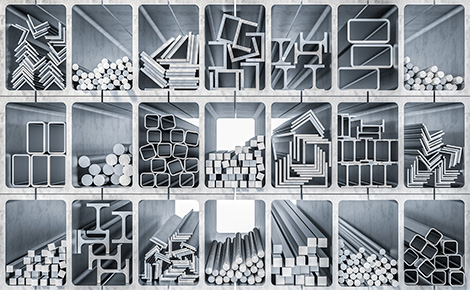What Is Aluminum? How Much Does It Coast?

Widely used in various sectors from aircraft and spacecraft to construction, from vehicles to electrical and electronic products, from industry to furniture and ornaments, aluminium is one of the most common elements on earth. Aluminium, which has the chemical symbol of Al, atomic number of 13 and is in the 13th group of the periodic table, is usually found in nature as a component of a mineral called “bauxite”. Preferred in various industrial applications because of its advantages such as glossiness, lightness, durability, good conductivity, low density, recyclability, and processability, aluminium has great importance in the economy of Türkiye and the world.
Aluminium Potential in Türkiye
According to a report issued by the Mineral Research and Exploration Institute (MTA) in 2018, Türkiye’s total “visible, probable, and possible” bauxite reserves are 422 million tons. The majority of the 63 million tons of operable reserves is in Konya-Seydişehir and Antalya-Akseki regions. Türkiye has 1 percent of the world’s reserves of “bauxite”, the most important raw material of aluminium which is mined as a compound (oxide) on earth.
Aluminium Industry in Türkiye
The aluminium industry in Türkiye is rapidly growing. More than 1,500 companies operating in the aluminium industry have achieved capacities that can compete in the global markets thanks to their investments in rolling and extrusion products. With a rising trend in the global economy, aluminium products are exported to European, Asian, and African countries by companies.
Introduced to the aluminium in the 1950s, Türkiye started to use it in this sector with the making of building joinery, kitchen utensils, and conductors used in the transmission of electrical energy. While aluminium was processed in small and few workshops in the country in 1956, the demand for this material has increased in line with the developments in all sectors since the 1960s. In 1967, aluminium manufacturing in Türkiye started with Seydişehir Aluminium Plants of Eti Aluminium. Continuing its development with the addition of various units over the years, the factory was privatized in 2005. Mining aluminium from ore and manufacturing anything from mine to final product, Eti Aluminium manufactures 82 thousand tons which is 10 percent of Türkiye’s annual need.
Where is Aluminium Used?
It is one of the most important engineering materials today with its functional qualities such as lightness, softness, durability, heat and cold conductivity, resistance to corrosion, and recyclability over and over. Aluminium is used in many different areas from packaging industry to space technology. Some of the products manufactured from aluminium, which is widely used in aviation, construction, automotive, food, and industry, can be listed as follows: Aircraft parts, kitchenware, window frames, rims, mobile phones, chassis, electronic products, rockets, missiles, electric poles, foils, cables, construction of buildings and bridges, LED bulbs, smartphones, tablets, and laptops.
How are Aluminium Prices Determined?
The London Metal Exchange (LME), the center of international trade, monitors the prices of aluminium which is one of the essential raw materials of the global economy. In addition, the Chicago Mercantile Exchange (CME) in the USA offers base metal futures contracts to market.
Aluminium, which is among the base metals, abundant on Earth, and easily mined, is used through various investment methods. Aluminium prices are determined by a number of factors such as global uncertainties and lockdowns, changes in consumer behaviors, direct supply and demand factors, international trade conditions, commodity-related developments, electricity and material processing costs."






